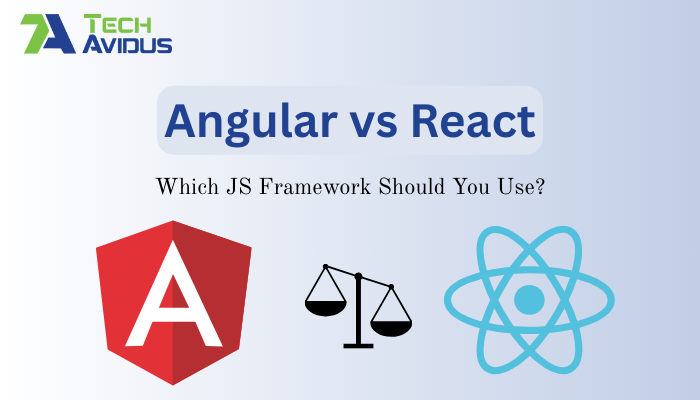
In recent years, technology has undergone rapid transformations, introducing new methods and approaches that tackle complex challenges. Web development, in particular, has evolved to become more user-friendly, faster, and responsive. Among the innovations in this space are Angular and React—two powerful tools that have significantly shaped modern web development.
Launched by Google in 2010, Angular is a robust platform for building dynamic web applications. Developed using TypeScript, Angular leverages a component-based architecture to create scalable and maintainable applications. It comes equipped with a comprehensive set of libraries and features, including client-server communication, routing, and more. Angular's rich ecosystem and developer tools facilitate the creation of everything from single-developer projects to large-scale enterprise applications. With continuous updates from Google’s Angular team, it remains at the forefront of web development technology.
React, an open-source JavaScript library managed by Facebook and its community, is designed for building user interfaces and UI components. React’s declarative, component-based approach allows developers to create interactive and complex UIs with ease. Its "learn once, write anywhere" philosophy supports the development of scalable applications across multiple platforms. Despite a steeper learning curve due to its extensive features, React's modular nature and lightweight package make it a popular choice for many developers.
Both Angular and React offer unique advantages and cater to different needs within the web development ecosystem. Here's a comparative overview:
Architecture and Language: Angular is a comprehensive framework built on TypeScript, which enhances code maintenance and performance, especially in complex applications. React is a JavaScript library that uses JSX, which allows for the creation of reusable UI components. Its flexible nature makes it suitable for applications with dynamic data.
Learning Curve: Angular's extensive feature set and TypeScript integration contribute to a steeper learning curve. However, its stability and robust support make it ideal for large-scale, long-term projects. React’s simpler API and learning curve make it accessible for new developers, though it may lack the out-of-the-box solutions provided by Angular.
Performance: Angular’s framework-based approach provides built-in solutions for various development needs, which can enhance performance in complex applications. React’s lightweight nature and efficient update mechanisms ensure fast rendering and a smooth user experience, especially in applications with frequently changing data.
Community and Support: Both Angular and React boast strong communities and substantial support. Angular benefits from Google’s backing and frequent updates, while React’s community-driven support from Facebook ensures a rich ecosystem of tools and libraries.
Angular and React both play pivotal roles in modern web development, each offering distinct advantages. Angular, with its comprehensive framework and TypeScript foundation, excels in building complex and large-scale applications. React, with its lightweight and flexible library, is ideal for dynamic and interactive user interfaces.
Are you considering developing a web application or upgrading your current system? Contact TechAvidus today to explore how our expertise in Angular and React can help bring your vision to life.
We have the most experienced Top 1% of Tech Talent Teams who can deliver superior technology solutions.
All Rights Reserved. Copyright © 2025 | TechAvidus